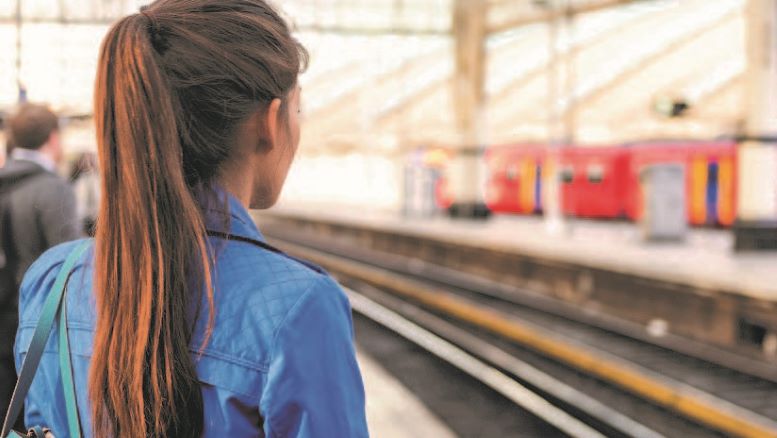
The Railway Industry Association (RIA), the industry body that represents over 290 companies, has proved that not only political parties can launch a manifesto in advance of a general election.
RAIL 2050 is RIA’s manifesto for a long-term, sustainable railway. In their foreword, chief executive Darren Caplan and chairman David Tonkin state that it sets out a vision for the next 30 years, highlighting what – with the right policy environment – rail suppliers can offer both rail customers and the economy.
Now is a critical time for the industry, they say, as Williams assesses the structure of the rail system and as both Network Rail and the political system become more devolved. By 2050, the railway supply sector could provide more capacity, a digitalised and decarbonised network, greater innovation, stronger UK rail exports – which currently generates £800 million and which can increase significantly with positive government support – and more cost-effective delivery.
But, they continue, this cannot be delivered without the 30-year vision that they propose.
RIA’s vision, as laid out in the manifesto, is of a rail system that excels for passengers, freight and the economy. By 2050, RIA expects that:
- Passengers will enjoy a more reliable and affordable everyday experience and their confidence in rail will have been restored and enhanced;
- The UK rail industry will have successfully delivered a 30-year investment strategy, including Crossrail, HS2, East West Rail, Trans Pennine Route Upgrade, Northern Powerhouse Rail, Midlands Rail Hub, Crossrail 2 and enhancements of existing networks to improve performance, capacity, customer experience and reduce carbon;
- Rail suppliers will provide world-leading products and services, implementing solutions at home and abroad that minimise the environmental impacts whilst doubling the number of rail journeys from 2019 levels and supporting significant growth in rail freight traffic;
- The share of UK rail exports as a percentage of UK railway revenues to increase to 40-55 per cent, surpassing other European nations.
Manifesto
To achieve these goals, RIA, through the RAIL 2050 manifesto, is calling on the political parties to provide:
- Development of a long term, 30-year strategy that promotes private investment:
- A strategy that provides long term policy certainty to the industry, thereby unlocking significant levels of private investment in rail.
- Closer liaison and coordination between the Government, devolved nations & administrations and regional transport bodies, to align investment plans.
- Accelerate the approval process for market-led proposals.
- The smoothing of ‘boom and bust’ in rail infrastructure and rolling stock investment, and improvement to the visibility of upcoming enhancement upgrade projects:
- A visible, stable, long term pipeline of infrastructure work, encompassing all major client bodies, both for renewals and enhancements, with work coming to market in a smooth profile that minimises peaks and troughs in order books.
- An annual baseline volume of renewals work, along with the associated funding. The baseline volume (or floor in the market), determined by asset condition, will represent the minimum level of work and funding needed to keep the railway operating in a steady state. This does not preclude the determination of a higher level of public investment above the baseline level, which would serve as the ceiling in the market.
- A visible national pipeline of enhancements which is developed with early supply chain involvement to ensure innovation and value for money.
- A better balance in the train fleet between new and upgraded trains:
- A long term, stable pipeline for new rolling stock orders, which balances the use of new and upgraded trains currently in service on the rail network, in order to maximise the utilisation of a long-term asset.
- A review of the franchising regime as it relates to quality criteria, such as whether the average age of the fleet is the most appropriate measure of passenger experience.
- Decarbonisation of the railway, through a rolling programme of electrification for intensively used lines and by using battery, hydrogen, bi-mode and tri-mode technology for other lines:
- A rolling programme of electrification in the short term (next 1-2 years) with all intensively used lines fully electrified within the following 10-15 years.
- In the next three years, tender the first passenger fleet orders for zero carbon trains, leveraging the experience from the demonstrators now being trialled.
- Provide an R&D programme with a strategy to reduce the carbon impact of rail freight.
- Digitalisation of the railway through deployment of modern digital signalling technology:
- Digital signalling technology becomes the default train control and traffic management system to improve the performance and capacity of the railway network. This means designing an organisational structure that supports digital integration to make the rail system fit for the future.
- Digital to be the default option for any new or replacement signalling for all UK railways.
- Delivery of the Long Term Deployment Plan for the Network Rail Digital Railway programme.
- Commitment to major rail projects including HS2, TransPennine Route Upgrade, Northern Powerhouse Rail, East West Rail, Midlands Rail Hub and Crossrail 2, amongst others:
- Success measure for major projects focus on whole-life economic, social and environmental benefits.
- Infrastructure owners complete scope, design and exploration before commencement of work can take place.
- Government contracts that reward wider economic impact in tender evaluation criteria. This might include jobs and apprenticeships created, or investment in skills, innovation, equipment or facilities.
- A set of priorities for innovation and collaboration between rail organisations:
- Value for money and innovation is incentivised by early supplier involvement and collaborative contracting arrangements.
- Government treats the rail industry similarly to the aerospace and defence industries and commits to an enduring strategic rail supply chain / rail manufacturing capability in the UK. This is recognised in Government procurement policy and innovation funding.
- All major rail clients to use alliance-based approaches to major project delivery.
- Support for the role of the rail industry as a key UK exporter when developing new trade agreements:
- In collaboration with Government, create an analysis of overseas rail opportunities for continuing and enabling export growth.
- Sustained Government support for the UK rail industry seeking to enter new overseas rail markets or continuing to export in established markets.
- On-going Ministerial participation in prioritised outward trade missions and in overseas rail exhibitions to support UK exporters.
Launch comments
In launching the manifesto, Darren Caplan, chief executive of the Railway Industry Association, said: “As the UK heads to the polls on 12 December, transport, and in particular, the future of rail, is one of the issues the political parties need to consider if they want to build a country with a world-class economy and best in class connectivity.

“RAIL 2050 – the Railway Industry Association’s Manifesto – has been developed with the input of our rail supplier members, to set out our vision for a long-term, sustainable, rail network that works for customers, taxpayers and the wider economy.
“Our call to the next Government, whatever its political hue, is clear: we need a strategy not just for the next electoral cycle but for the next 30 years, which ends ‘boom and bust’ in rail funding, balances the train fleet with both new and upgraded trains, and which digitalises, decarbonises and delivers the range of major projects we need to increase capacity. This strategy also needs to help promote greater innovation and collaboration in the sector, whilst developing rail as a key part of the UK’s exports and overseas trade offer.
“Whilst we look forward to seeing each of the political parties’ manifestos as they are published over the coming weeks, all of us in the railway industry need to make the case for building world-class rail at home and abroad both before and then when a new Government is finally elected in December. With the Williams and Oakervee Reviews reporting soon too, and Brexit continuing the uncertainty, now really is a crucial time in the development of rail policy for the years ahead.”

David Tonkin joined with Darren Caplan to conclude: “With a General Election campaign now underway to elect a new government, we ask politicians, policy-makers and influencers of all political parties to heed RIA’s call for long-term thinking about, and planning for, the UK’s railways.
“Only by doing this can we work together to build customer-focused rail at home and abroad, for the benefit of passengers, freight, taxpayers and the wider economy.”
RIA’s RAIL 2050 manifesto can be downloaded here.



Be the first to comment